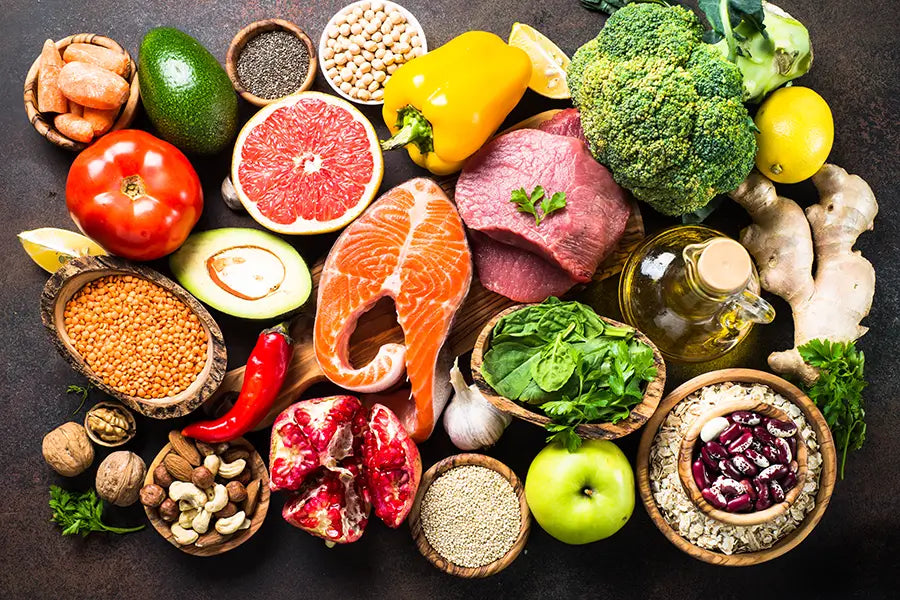Fueling Your Body for Swim Success: Nutrition Tips for Swimmers
Proper nutrition is essential for swimmers to fuel their bodies and optimize performance in the pool. Whether they're competitive swimmers or enjoy swimming as a recreational activity, fueling their bodies with the right nutrients can optimize training, enhance recovery, and improve overall swim performance. Here are some valuable nutrition tips for parents, swim directors, and swimmers, including pre and post-workout nutrition, hydration strategies, and overall dietary recommendations to help swimmers reach their goals.
Pre-Workout Nutrition for Swimmers
Timing is key: Swimmers should aim to have a pre-workout meal or snack about 1 to 2 hours before their swim session. This allows enough time for digestion and absorption, ensuring they have the necessary energy during their training.
Carbohydrates for energy: Swimmers should include complex carbohydrates in their pre-workout meal to provide sustained energy for the swim. Options include whole grains, fruits, vegetables, and legumes. Examples of pre-workout meals/snacks include oatmeal with berries, a banana with nut butter, or a whole grain sandwich with lean protein.
Moderate protein intake: While carbohydrates are the primary fuel source for swimmers, including a moderate amount of protein in their pre-workout meal/snack can support muscle repair and maintenance. Good sources of protein include lean meats, fish, eggs, dairy products, and plant-based proteins like tofu or lentils.
Hydration is essential: Swimmers must hydrate adequately before their swim session. They should aim to drink water or a sports drink at least 1 to 2 hours before training to ensure optimal hydration levels.
During Workout Hydration
Stay hydrated throughout: Proper hydration is crucial for maintaining performance and preventing dehydration during a swim. Swimmers should sip on water or a sports drink during longer training sessions or intense workouts to replenish fluids and electrolytes lost through sweat.
Opt for a sports drink: For prolonged swim sessions or intense training, swimmers might consider a sports drink that contains carbohydrates and electrolytes. This helps replenish energy stores and maintain electrolyte balance.
Post-Workout Nutrition
Refuel with carbohydrates: After a swim session, swimmers should replenish their glycogen stores by consuming carbohydrates within 30 minutes to an hour. Easily digestible carbohydrates such as fruits, whole grains, or a sports recovery drink can kickstart the recovery process.
Adequate protein for recovery: Protein is essential for muscle repair and growth. Swimmers should include a source of lean protein in their post-workout meal/snack, such as grilled chicken, Greek yogurt, or a protein smoothie with fruits and vegetables.
Rehydrate: Hydration is crucial post-workout to replace fluids lost during swimming. Swimmers should drink plenty of water or a sports drink to rehydrate and restore electrolyte balance.
Overall Dietary Strategies

Balanced meals and snacks: Swimmers should aim for balanced meals and snacks that include a combination of carbohydrates, protein, and healthy fats. This provides a steady source of energy and essential nutrients for optimal swim performance.
Nutrient-dense foods: Swimmers should focus on consuming nutrient-dense foods to support overall health and swimming performance. They should include a variety of fruits, vegetables, whole grains, lean proteins, and healthy fats in their diet.
Omega-3 fatty acids: Omega-3 fatty acids have anti-inflammatory properties and can support cardiovascular health. Swimmers can include fatty fish like salmon, chia seeds, flaxseeds, or walnuts in their diet to reap the benefits.
Antioxidant-rich foods: Swimming, like any physical activity, produces free radicals that can lead to oxidative stress. Swimmers should include antioxidant-rich foods such as berries, dark leafy greens, colorful vegetables, and green tea to combat oxidative stress and support recovery.
Avoid excessive processed foods and added sugars: Processed foods and added sugars can provide empty calories and hinder optimal performance. Swimmers should limit their intake of sugary snacks, sodas, and processed foods, and instead opt for whole, unprocessed foods.
Parents' Role in Supporting Swimmers' Nutrition
Parents play a crucial role in nurturing their children's swimming performance through proper nutrition. For young swimmers, nutrition education should start at home. Parents can help by providing balanced meals, encouraging healthy snack choices, and promoting hydration. Making nutritious meals a family affair and involving children in meal planning and preparation fosters a lifelong understanding of healthy food choices.
It's also important for parents to set a positive example as children often mirror their habits, including dietary behaviors. If a child sees their parents making healthy choices and valuing proper nutrition, they're more likely to do the same. For long swim meets or practices, parents can pack healthy snacks such as fresh fruits, nuts, and protein bars that can be consumed during breaks to keep energy levels consistent.
Role of Swim Team Directors in Promoting Nutritional Health
Swim team directors also hold an essential role in fostering nutritional health among team members. They can organize nutritional education workshops for swimmers, providing a platform for athletes to learn about the importance of nutrition in enhancing performance and recovery. Team directors can also collaborate with nutrition professionals to provide personalized dietary advice to swimmers.
During swim camps or long-duration competitions, the provision of nutritious meal options can ensure swimmers get the right fuel they need. Additionally, directors can instill the importance of regular hydration before, during, and after swim practices and meets. Nutrition is a team effort, and by creating an environment that promotes nutritional health, team directors can contribute significantly to the team's overall performance and success.
Nutrition and Performance
Proper nutrition is a fundamental aspect of swim training and performance. By following these nutrition tips, swimmers can fuel their bodies effectively, enhance their performance in the pool, and promote overall health and well-being. Swimmers should remember to focus on balanced meals, adequate hydration, and nutrient-dense foods to optimize their swim success. Pairing dedication in the pool with a commitment to proper nutrition can bring swimmers' goals within reach.

